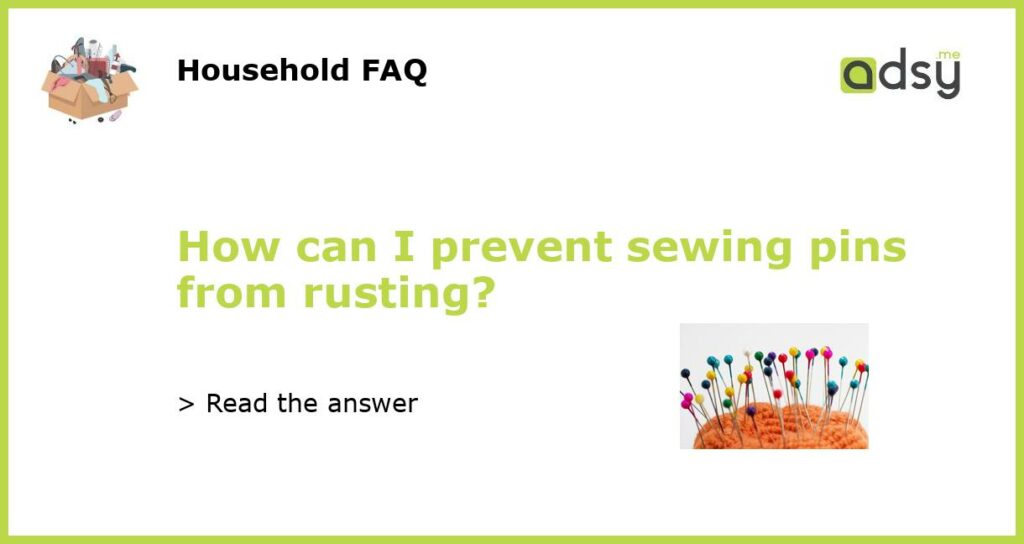Understanding why sewing pins rust
Before we discuss preventive measures, it is important to understand why sewing pins rust in the first place. Sewing pins are made of steel, which is susceptible to rusting when exposed to moisture and oxygen. When sewing pins come into contact with water, humidity, or even the oils from our skin, they can begin to oxidize, leading to rust formation. The rust not only affects the appearance of the pins but can also compromise their functionality and make them difficult to use.
Proper storage to prevent rust
A key step in preventing sewing pins from rusting is to store them properly. One of the main culprits for rust formation is moisture, so it is essential to keep your sewing pins away from damp environments. A simple and effective way to store your pins is by using a pincushion or a magnetic pin holder. Make sure the pincushion or pin holder is kept in a dry and well-ventilated area. Avoid storing the pins in plastic containers, as this can cause condensation and moisture buildup, which promotes rusting.
Keeping sewing pins dry
Keeping your sewing pins dry is another crucial step in preventing rust formation. Ironing or steam can introduce moisture to your pins, so it is recommended to avoid ironing over pins or steaming fabrics with pins in them. If your pins do come into contact with water or any other liquid, make sure to dry them thoroughly before storing them. A simple technique to dry the pins is to place them on a towel or absorbent material and gently press down to remove any excess moisture.
Anti-rust solutions
If despite your best efforts, you find that your sewing pins are prone to rusting, there are anti-rust solutions available that can help prevent oxidation. One popular solution is using silica gel packets. Silica gel is a desiccant that absorbs and retains moisture, keeping the surrounding environment dry. You can place a few silica gel packets in your pin storage container or pincushion to help absorb any moisture and prevent rust formation. Another option is to use a product specifically designed to prevent rusting, such as a rust inhibitor spray. These sprays create a protective barrier on the surface of the pins, preventing moisture and oxygen from reaching the metal.
Cleaning and maintenance
Regular cleaning and maintenance of your sewing pins can also help prevent rusting. Over time, pins can accumulate oil, dust, and residue from fabrics, which can contribute to rust formation. To clean your pins, you can use a soft cloth or a cotton pad lightly dampened with rubbing alcohol. Gently wipe the pins to remove any dirt or residue and then allow them to air dry completely before storing. Additionally, it is important to regularly inspect your pins for any signs of rust. If you notice any rust spots, it is best to replace those pins to avoid potential damage to your fabrics.






